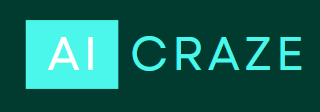
In the fast-evolving landscape of technology, Artificial Intelligence (AI) has become a pivotal aspect of innovation. Azure AI Engineers play a crucial role in harnessing the power of AI within the Azure ecosystem, one of the leading cloud platforms provided by Microsoft. In this article, we delve into the role and significance of Azure AI Engineers and explore Azure AI Engineer salary trends across different countries.
Definition of Azure AI Engineer
An Azure AI Engineer is a skilled professional responsible for creating, deploying, and maintaining AI solutions on the Azure platform. These engineers possess a deep understanding of AI technologies and leverage them to build innovative applications that solve complex business challenges.
Growing Importance of AI in Azure
AI has become a cornerstone of modern technological advancements, and Azure has emerged as a prominent player in the cloud computing realm. The integration of AI capabilities within Azure services has led to the rapid development of AI-powered applications and solutions.
Significance of Understanding Salary Trends
Understanding salary trends is vital for professionals considering a career as an Azure AI Engineer. Factors such as geographical location, experience, and industry standards influence salary ranges. It’s essential to stay informed about these trends to make informed career decisions.
Azure AI Engineer Role and Responsibilities
Azure AI Engineers are responsible for designing, implementing, and deploying AI solutions on the Azure platform. They collaborate with data scientists, developers, and other stakeholders to ensure the successful integration of AI technologies into applications.
These engineers develop machine learning models, create data pipelines, and utilize Azure services to build and deploy AI applications. They also optimize and fine-tune AI models for maximum efficiency and performance.
Azure AI Engineers play a critical role in the entire AI development lifecycle. They are involved in data collection, preprocessing, model training, evaluation, and deployment, ensuring that AI solutions meet business objectives and user requirements.
Importance of Azure AI Engineers
Azure’s comprehensive set of cloud services and tools has positioned it as a leader in the cloud computing market. The platform’s integration with AI technologies further solidifies its dominance and provides extensive opportunities for AI Engineers.
The integration of AI capabilities directly into the Azure platform simplifies the development and deployment of AI solutions. This integration encourages organizations to leverage AI to enhance their products and services.
As organizations across industries recognize the potential of AI, the demand for skilled Azure AI Engineers is on the rise. These professionals are sought after to drive innovation, develop AI-driven applications, and optimize business processes.
Azure AI Engineer Certification
- Microsoft Certified Azure AI Engineer Associate
Microsoft offers the Microsoft Azure AI Engineer Associate certification, validating professionals’ skills in designing and implementing AI solutions on Azure. This Azure AI Engineer certification serves as a testament to an engineer’s expertise and proficiency in AI technologies.
- Azure AI Engineer Certification Requirements and Benefits
To earn the Microsoft Azure AI Engineer Associate certification, candidates need a strong foundation in AI and Azure technologies. Becoming a certified Azure AI Engineer Associate enhances Azure AI jobs prospects and opens doors to more challenging and rewarding opportunities.
- Impact on Azure AI Engineer Salary and Career Advancement
Certified Azure AI Engineers often command higher salaries due to their validated skills and expertise. The Microsoft Azure AI Engineer Associate certification can also accelerate career advancement by showcasing a professional’s commitment to continuous learning and growth.
Azure AI Engineer Salary Trends in 2023
Factors Influencing Azure AI Engineer Salary
- Geographic Location (US, UK, India, etc.)
Azure AI Engineer salary varies significantly based on the country or region. High-demand locations like the US and UK offer competitive compensation due to a shortage of skilled AI professionals.
- Experience and Skillset
Experience and the breadth of skills significantly impact salaries. Seasoned engineers with a proven track record of successfully delivering AI projects command higher pay.
- Industry and Company Size
Industries that heavily rely on AI, such as finance, healthcare, and technology, are more likely to offer substantial salaries. Larger companies also tend to offer more competitive compensation packages.
Average Azure AI Engineer Salary Ranges for Azure AI Engineers
- US
In the US, Azure AI Engineers can expect an average annual salary ranging from $100,000 to $150,000, depending on location and experience.
- UK
Azure AI Engineers in the UK earn an average annual salary ranging from £60,000 to £90,000.
- India
In India, salaries for Azure AI Engineers typically range from ₹8,00,000 to ₹15,00,000 per year.
- Global Comparison
Globally, the average annual Azure AI Engineer salary hovers around $120,000, showcasing the universal demand for their skills.
Microsoft Azure AI Engineer vs. Other AI Roles
- Comparison with Microsoft Machine Learning Engineer
While both roles deal with AI technologies, Azure AI Engineers focus on designing and implementing AI solutions within the Azure ecosystem. Microsoft Machine Learning Engineers, on the other hand, concentrate on developing machine learning models using Microsoft technologies.
- Distinguishing Skills and Responsibilities
Azure AI Engineers need expertise in Azure services, AI model deployment, and integration with Azure DevOps. Machine Learning Engineers emphasize model training, feature engineering, and algorithm selection.
- Salary Differences and Career Trajectories
Azure AI Engineers and Machine Learning Engineers enjoy similar salary ranges, with slight variations based on the focus of their roles. Career trajectories are influenced by individual preferences, project involvement, and continuous skill development.
How to become an Azure engineer?
- Required Education and Background
Most Azure AI Engineers hold a bachelor’s or master’s degree in computer science, engineering, or a related field. An educational background in AI, machine learning, or data science is advantageous.
- Acquiring Azure and AI Skills
Proficiency in Azure services, AI frameworks, and programming languages like Python is essential. Aspiring engineers can gain knowledge through online courses, tutorials, and hands-on projects.
- Gaining Practical Experience
Real-world experience is crucial for mastering the role. Working on personal projects or internships can provide hands-on experience and help in building a portfolio.
- Obtaining Relevant Certifications
Earning certifications like the Microsoft Certified Azure AI Engineer Associate validates skills and boosts credibility in the job market, increasing the likelihood of higher-paying opportunities.
Azure AI Engineer Jobs Market
The Azure AI Engineer Jobs market is robust, with numerous job openings across industries. The demand for AI skills continues to outpace the supply, making it a favorable career choice.
Industries such as finance, healthcare, e-commerce, and technology are actively hiring Azure AI Engineers to innovate and develop AI-powered solutions that drive business growth.
The future of Azure AI Engineers looks promising, with AI becoming an integral part of technology-driven solutions. As AI continues to evolve, the demand for skilled professionals will continue to rise.
Conclusion
Azure AI Engineers play a pivotal role in leveraging AI technologies within the Azure platform to create innovative solutions. As AI becomes increasingly essential in modern business landscapes, the demand for skilled Azure AI Engineers will continue to grow, offering exciting career prospects. They earn a very good amount of salary ranging from $100,000 to $150,000 on average.
FAQs
What is Azure AI?
Azure AI refers to the integration of artificial intelligence capabilities within the Microsoft Azure cloud platform. It allows developers and organizations to create, deploy, and manage AI-powered applications and services.
How Much Do Azure AI Engineers Earn?
The Azure AI Engineer salary varies based on factors like location, experience, and skillset. On average, an Azure AI Engineer can earn between $100,000 to $150,000 annually in the US.
Is Certification Necessary for Azure AI Engineers?
While certification is not mandatory, earning certifications like the Microsoft Certified Azure AI Engineer Associate can enhance Azure AI jobs prospects and potentially lead to higher salaries.
How Does Location Affect Azure AI Engineer Salary?
Geographic location significantly impacts salaries. High-demand regions like the US and UK offer more competitive compensation due to the shortage of skilled Azure AI Engineers.
How Can I Transition into an Azure AI Engineer Role?
To transition into an Azure AI Engineer role, start by building a strong foundation in AI and Azure technologies. Acquire relevant skills, work on hands-on projects, and consider earning certifications to showcase your expertise to potential employers.
What is Microsoft Azure Salary?
Microsoft Azure salary varies based on factors like job role and location, with average annual earnings ranging from $80,000 to $150,000 or more.
What is Microsoft machine learning engineer salary?
The Microsoft Machine Learning Engineer salary varies based on factors such as experience, location and industry demand with typical annual earnings ranging from $90,000 to $150,000 or more.
What is the Azure security engineer associate salary?
The Azure Security Engineer Associate Salary can vary depending on factors like experience, location, and industry demand, with average annual earnings typically ranging from $80,000 to $130,000 or more.
What is Azure developer associate salary?
Azure Developer Associate Salary can vary based on factors like experience, location, and industry demand, with typical annual earnings ranging from $70,000 to $120,000 or more.

